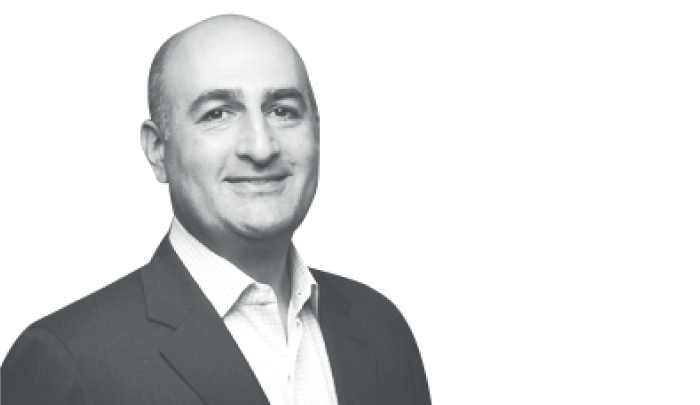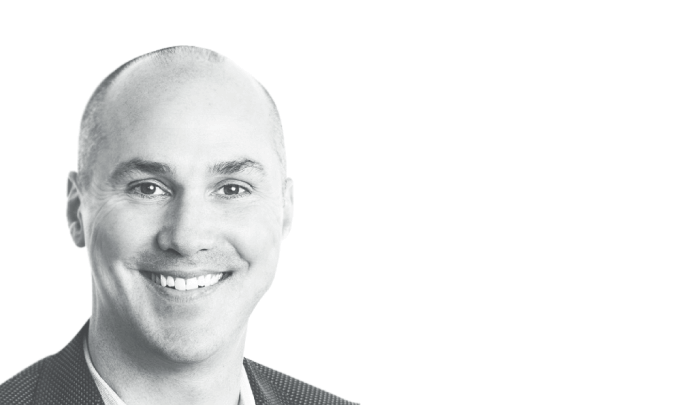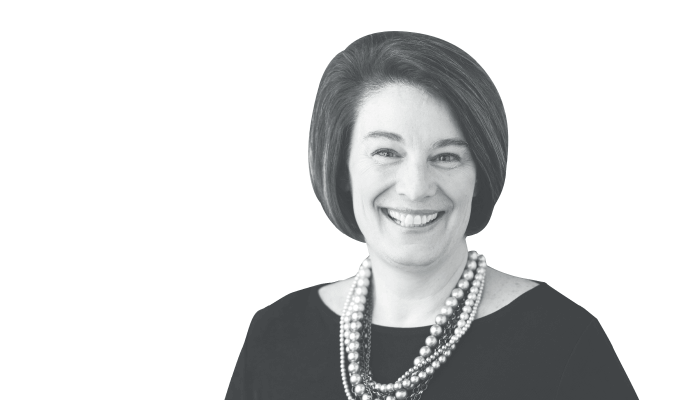
How has Allergan adapted to meet physicians’ needs during the pandemic?
Our customers and their patients are our highest priority. When it became apparent that congresses were being canceled, travel between countries restricted or stopped, we knew that it was critical to continue to support the community – eyecare professionals and patient groups – during this unprecedented time. Facilitating the coming together of the community on a virtual level to share learnings, experiences, ideas, and fears was essential. Furthermore, the role of patient groups was becoming more critical than ever as access to care in many countries became restricted due to local regulations.
We proactively reached out to experts, patient groups, and trade media to better understand their needs. We were sensitive to the fact that our community may be impacted personally by the pandemic.
Once we had a good understanding of what the community needed, we conducted carefully timed webinars with content driven by our external experts, we moved quickly to turn our face-to-face meetings into engaging virtual content, and worked with congress organizers to deliver virtual satellite symposia. The timings of those webinars were optimized to allow for work and family commitments in lockdown situations and the content was created to specifically meet the needs of the community.
Are there any silver linings to this dark cloud?
The acceleration of virtual care models or telemedicine has been a positive impact of the pandemic, as has the rapid adoption of virtual meeting technologies for educating a wider group of people. We have also seen many stories of courage, empathy, and generosity over the last few months.
How has the world of ophthalmology changed in the wake of COVID-19?
Physicians have had to adjust to managing patients using telemedicine instead of figuring out ways to get patients into the office – this probably should have happened years ago, but COVID-19 has been the catalyst. Some practices are finding a way to balance this change, reporting more refractive and elective procedures than last year. On the industry side, there is still plenty of innovation and entrepreneurial activity, albeit slowed down or delayed due to lack of funding or inability to conduct clinical studies under lockdown conditions.
How have Avellino’s operations changed as a result?
We changed our entire business! Avellino was very excited about bringing AvaGen to the market after our launch event at the 2019 AAO in San Francisco. Just as we were ramping up, COVID-19 shutdowns came all across the USA. We pivoted, using our expertise in molecular testing, and focused on taking the pandemic head on. We designed a test for our own employees and applied for authorization through the FDA, which we received in March. Since then, we have used our Active Coronavirus Testing & Safety (ACTS) program to help clinics and surgery centers implement testing to keep employees and patients safe as they reopened, with detailed step-bystep guidelines. We have also helped first responders, nursing homes, schools, employers, and community screening sites provide testing to those most at risk. We have performed over 350,000 tests since March, and are growing every week. This growth will power our expansion in ophthalmology and R&D work in other genetic diagnostics and therapies.
We will keep working on and providing testing solutions for SARS-CoV-2, until the market opens up and we can relaunch our core genetic testing product, AvaGen – the first genetic test for corneal dystrophy diagnosis and keratoconus risk.

How have you adapted to meet physicians’ needs during this period?
We have been doing our part by repurposing our products and redirecting supplies in response to the COVID-19 crisis, including significant donations of PPE to healthcare facilities in some of the hardest-hit areas. Surgical gowns and gloves are a vital part of BVI®’s ophthalmic surgical business and, with the global surge in demand for these items, it is unclear when more supplies can be expected. To help, BVI® partnered with Haywood Vocational Opportunities (HVO) in late spring to provide isolation gowns to US healthcare workers on the front lines of the pandemic. HVO is a US-based medical product manufacturer that provides vocational training and employment opportunities for adults with disadvantages and disabilities. Through outstanding teamwork between the organizations, an isolation gown was designed, tested, manufactured, and released to the market in less than three months, which is unprecedented for a company in the ophthalmic industry.
What further plans do you have in store?
As well as donating to frontline workers, we have quickly adapted to meet customers’ needs and continue providing innovative products to ophthalmic surgeons. This means that, when patients return to hospital centers or offices for treatment, they will benefit from an extended range of options to improve their sight and quality of life. Launches included products that support surgical procedures, such as CryoTreq® and IPure®, as well as the US expansion of Malosa® single-use and Patient Packs, which are individually packaged for added patient confidence in returning for routine office visits and check-ups. BVI continues to consistently innovate, adapting to support our customers and their patients in ever-changing circumstances.

What changed for J&J Vision in the wake of COVID-19?
COVID-19 has undoubtedly changed the landscape of 2020, but we were built for times like these. We knew that our industry was hurting – so we mobilized quickly to partner with our customers and their practices. We provided compliant ways to help ease the financial burdens brought on by halting elective procedures, guidance for reopening safely, and educational programs to keep practitioners’ skills sharp. We have hosted over 200 hours of professional education projects in the US and trained over 50,000 HCPs worldwide since January, and we will continue this trend post-COVID-19.
Our teams created a digital ECP toolkit that includes Reconnect and Rebuild Guide, compiling all the government and trade association guidance available in one place to support successful and safe re-openings.
How have your operations had to change?
At J&J, we are all-in on vision, and we are passionate about changing the trajectory of eye health worldwide. And that hasn’t changed. But as we navigated the unique challenges our customers, patients, and own business faced due to the pandemic, we had to reassess our priorities and focus on what we can impact now, while ensuring our long-term focus continues to be shaped by the needs of our customers and their patients. Our near-term focus is on supporting our customers, patients, and employees – safely – throughout all stages of reopening and rebuilding their practices. Our long-term focus right now is on innovation. We have done a lot of listening to make sure we deliver what our customers and their patients need in the future.

How has ZEISS adapted to meet physicians’ needs in the wake of COVID-19?
The pandemic has been a disruptive force for us globally. We engaged with thousands of customers to understand their challenges and short- and long-term needs. There were some clear themes across the world: extra pressures on surgical procedures, additional sterilization protocols, social distancing between patients and clinicians, and the need to adjust workflows to increase efficiency and improve clinical outcomes.
In response, we launched the “MED Support Now” website to provide resources such as social distancing and remote-care solutions, patient COVID-19 communication packages, guidelines for optimizing diagnostic exams for adapted workflows, personal treatment outcome analysis tools, cleaning and disinfecting guidelines, and we donated over 100,000 breath shields globally. Our professional education team put together more than 270 webinars and other digital formats for continuing education and eLearning. We have now shifted our focus to providing solution enhancements across the full spectrum of care – from assessment, diagnosis, to treatment.
How have your own operations changed as a result?
We continue to focus on providing technologies and solutions to help address the problems for the physician. We launched workflow solutions for cataract, corneal refractive, retina and glaucoma at ESCRS and introduced our future product FORUM Cloud Viewer, which will provide access to patient data easily and quickly from anywhere to support doctors in delivering better patient care through secure sharing of complex cases with their colleagues. ZEISS will continue to invest in digital solutions to capture and integrate data across clinical workflows to help improve patients’ quality of life and drive progress, efficiency and access to quality healthcare.

How has Alcon adapted to meet physicians’ needs during the pandemic?
Early on in the pandemic, we wanted to understand the challenges of our customers, so we listened a lot. We stepped up our efforts to collaborate with industry societies and the medical community as new protocols were developed to safely serve patients. We developed resources needed during this unprecedented time, including virtual customer support, online assets and training, and reimbursement tools for telemedicine, while also raising customer awareness of available government funding mechanisms. Our website is a hub of information resources to help our customers weather this environment and successfully reopen their practices.
How have your operations had to change as a result?
Our immediate focus was on implementing extensive measures to keep our associates safe – whether they be essential employees in our manufacturing and distribution facilities or our office-based associates who worked from home. Throughout this disruption, we found our workforce to be as collaborative as ever – enabling Alcon to continue to innovate and deliver the products that surgeons and their patients need. We adapted our approach to leverage virtual opportunities. For example, to launch Vivity – a first-of-its-kind PC-IOL – throughout Europe, we’ll be virtually hosting an array of events with ophthalmologists to generate excitement. We also offer remote account management by our sales and customer service teams in lieu of in-person visits. And our emphasis on digital technology is further exemplified by our commitment to launch the SMART Suite by Alcon – a comprehensive cloudbased platform designed exclusively for ophthalmology to seamlessly connect devices and data systems from the clinic to the OR.
Are there any silver linings to this dark cloud?
The pandemic has accelerated Alcon’s maturation as an independent, global company and has revealed to us many learnings that have already made Alcon a stronger company. The most important of these learnings was the affirmation of our resolve at the outset of this global health crisis to remain fully committed to our associates, customers and their patients. To navigate through these challenges, we consciously relied upon our company’s fundamental principles of driving innovation and caring for our customers and our people. And, we couldn’t be more proud of how Alcon’s more than 20,000 associates respond each day facing most difficult circumstances.

